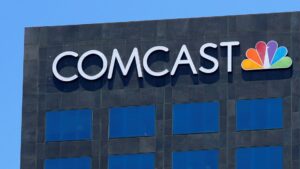Comcast’s Strategic Spinoff: What It Means for the Future of Media
In a significant move that has caught the attention of industry analysts and media consumers alike, Comcast is set to spin off its cable network channels, a decision that reflects the shifting landscape of television and digital media. According to insights from sources close to the matter, the separation is anticipated to take approximately one year, with an official announcement expected soon.
Key Leadership and Structure
Mark Lazarus, the current chairman of NBCUniversal’s media group, will spearhead the new entity, bringing years of experience in navigating the complexities of the media landscape. Anand Kini, the Chief Financial Officer for NBCUniversal, will take on the role of CFO and operational leader for the spun-off company. While Comcast’s CEO, Brian Roberts, will retain a voting position within this new framework, he will step back from day-to-day operations and board responsibilities.
This strategic realignment is not merely an internal shift; it represents a calculated effort to enhance the value of Comcast’s cable networks. By separating these assets, Comcast is positioning itself to explore merger opportunities with other networks or to entertain offers from private equity firms.
Tax-Free Transition and Comparative Share Structure
One of the most beneficial aspects of this spinoff is that it will be executed in a tax-free manner for shareholders. The crafted share structure of the new entity will closely mirror that of Comcast, ensuring a smooth transition for investors and minimizing disruption. Such strategic financial planning illustrates Comcast’s commitment to maximizing shareholder value even amidst turbulent market conditions.
At the helm of NBCUniversal, further leadership transitions are forthcoming. Donna Langley will take over as the chairman of NBCUniversal Entertainment and Studios, while Matt Strauss will lead the NBCUniversal Media Group, overseeing critical components such as sports, ad sales, and distribution. Cesar Conde will remain in charge of NBCUniversal News Group, which includes oversight of NBC News.
A Response to Changing Consumer Behavior
This spinoff aligns with the current trends in media consumption. As millions of viewers leave traditional pay TV subscriptions for streaming platforms, Comcast has intensively invested in enhancing its own streaming service, Peacock. According to their financial reports, Comcast’s media segment revenue saw remarkable growth—up nearly 37% to $8.23 billion in the third quarter, mainly fueled by major events like the Olympics.
The new direction also clear that while traditional TV networks may be experiencing challenges thanks to "cord-cutting," they still represent valuable revenue streams for media conglomerates. The report indicated that, without the Summer Games, revenue would have increased by nearly 5%, signifying year-over-year growth potential beyond sporadic high-profile events.
The Future Outlook
While the spinoff is poised to take around a year to finalize, it raises questions about existing content partnerships. Discussions about the future collaborations of CNBC, MSNBC, and NBC News have yet to happen, indicating a period of uncertainty for these mergers. As the media landscape continues to evolve, the future of these brands will be closely watched.
Extreme Investor Network is excited to witness how these developments play out and what it means for the broader media industry. As Comcast progresses with this spinoff, it will be crucial for investors and analysts to stay abreast of these changes and assess their implications for the market.
In conclusion, while the spinoff signifies a shift for Comcast, it also serves as a testament to the evolving nature of content consumption and distribution in today’s digital age. For more in-depth analysis and expert insights, keep reading Extreme Investor Network—your go-to source for navigating the complexities of investment possibilities in a rapidly changing environment.

